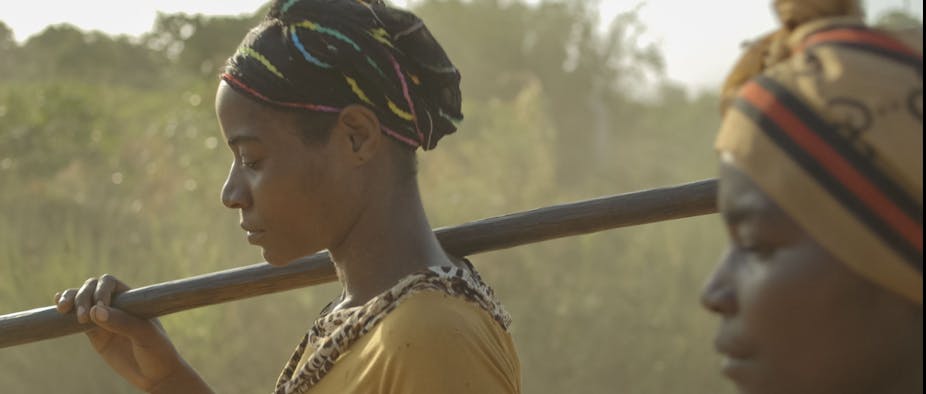Mariam is a 67-year-old grandmother living in rural Tanzania. She lives with her brother and sister-in-law in Miono, a small rural town. She makes money through small subsistence farming.
She has been married but since her husband died she hasn’t been keen to marry again. The reason: she is HIV positive.
For Mariam, living with HIV in rural Tanzania is difficult. She was stigmatised because of a lack of understanding about the disease. Treatment sometimes makes her feel sick. Yet she still has to work, continuing the daily grind of ploughing the land.
The only ray of hope for Mariam came when she started to educate her community about HIV and how treatment allowed her to live a healthy life. Things finally started to change.
Mariam’s story is not unique. Her life is the reality for many HIV positive women in rural Tanzania. Many of their partners have died of AIDS. Some men left when they discovered their partners’ HIV status. As a result they have stories of single parenthood, hard labour in the fields, and the stigma and everyday risk HIV brought to their lives.
These stories are often unheard outside the communities in which these women live. And my previous research as an academic working in global health politics would suggest they are quite common in rural East Africa.
I decided to make the story of Mariam and 85 other women into the feature film PILI.
A grim reality
UNAIDS data shows that in 2015 there were 780,000 Tanzanian women living with HIV/AIDS. The disease affects just under 5% of the population compared to 2% of Kenyans, 12% of Zambians and 3% of Rwandans. In Tanzania two thirds are women.

These women face a range of challenges: stigma from the community, self stigma, access and adherence to treatment, disclosure to partners, and prevention of mother to child transmission.
They also face the additional burden of having to care for children, family and friends in the community affected by the disease.
Living in rural Tanzania compounds these issues. Women work in the informal agrarian economy which is dependent on both the weather and labour supply. When the harvest is good they have enough to get by. But they often struggle to pay for living costs such as medical bills, school uniforms or a new roof.
The town’s health centre serves people in the immediate local community as well as patients from up to 50km away. It only has two clinic days a week for people living with HIV. As a result people who are HIV positive have to travel more than 80km to access treatment.
This means they often lose a day of work so that they can access care and treatment centres. And when they arrive at these centres, they have long waiting times to see the over-stretched healthcare practitioners.
For women living with HIV when testing and counselling services and the provision of antiretrovirals in the local health centre arrived in 2009, it was a game changer.
Real life stories

PILI is the story of one woman determined to change her life. She works the fields for less than US$ 2 a day to feed her two children. She struggles to manage her HIV positive status in secret.
When she is offered the chance to rent a sought-after market stall, PILI is desperate to have it. But with no time to get the deposit together, PILI is forced to make increasingly difficult decisions with ever deepening consequences. How much will she risk to change her life?
The film is based on the stories of women from the Pwani region of Tanzania based on the common themes to their stories. Even though the story of PILI is not based on one individual woman, each of the women could identify with the challenges and risks she encounters.
Most of the women were left by their partners to raise their children after disclosing their HIV status. Many suggested they had experienced some form of stigma or self-stigma and shame.
Those living in the more rural towns of Mbwewe and Miono worked in the fields. They accessed loans from small micro-lending groups to get by. All of them shared an aspiration to own a small business and get out of the fields. And a handful of them volunteered as peer educators at the local care and treatment centre. All of them spoke about the impact that access to treatment had on their lives.
We had set out to make a film that was compelling but not sensational, and one in which the cast and crew were not detached from the story they told, in our case that of women living with HIV. The result of PILI is that it features untrained actors – many of whom were HIV positive.
Untrained as they were no-one in the cast seemed awkward about seeing themselves on screen. They had all introduced themselves and their characters at the beginning of the film.
Sharing stories around the world
The stories of the women in Miono need to be heard at a time when future funding for HIV/AIDS care and treatment is threatened. The world needs to see the difference treatment can have but also the everyday struggles managing your HIV status in a resource poor setting can bring.
Our plan for PILI is that it premieres at an international film festival in 2017 to get worldwide distribution to make the women and communities in the film some money.
PILI not only highlights the issues HIV positive people fact. It also looks at the wider fragility of living with HIV when working in the informal economy and bringing up children on your own.
Women living with HIV and AIDS in rural Tanzania are often talked about but their everyday realities and experiences are unseen in wider HIV/AIDS and development policy and practice. This film helps them to be seen on the biggest screen available.

